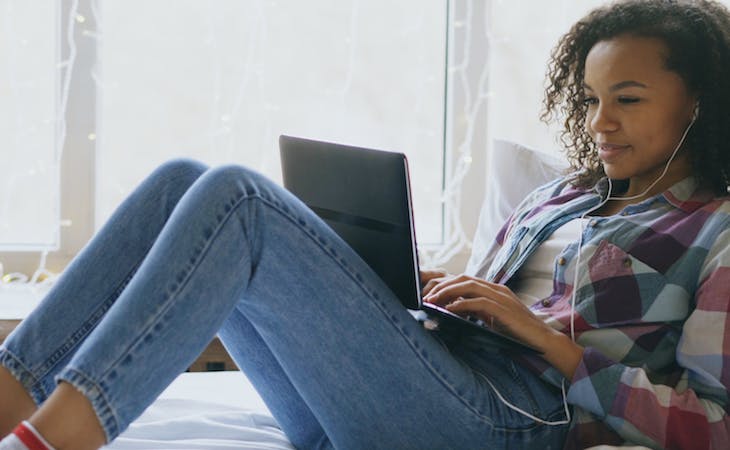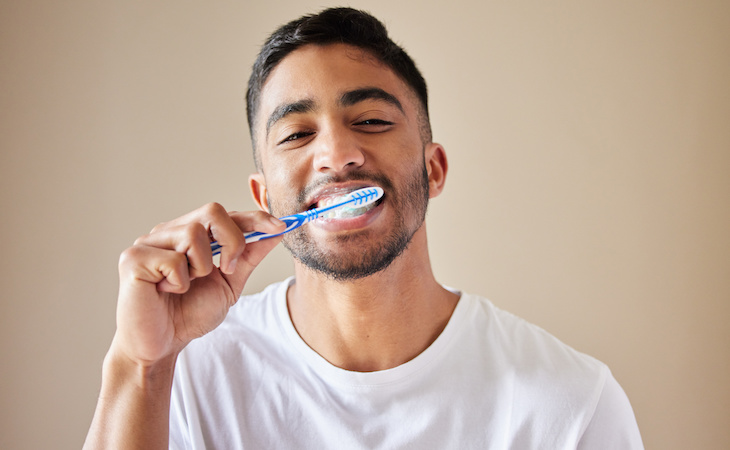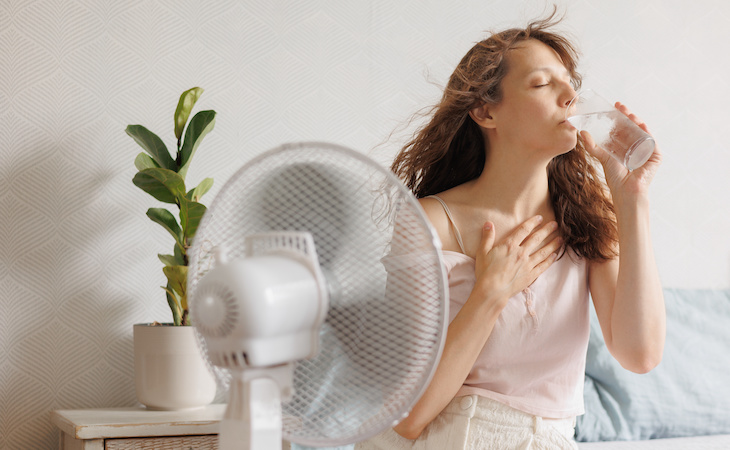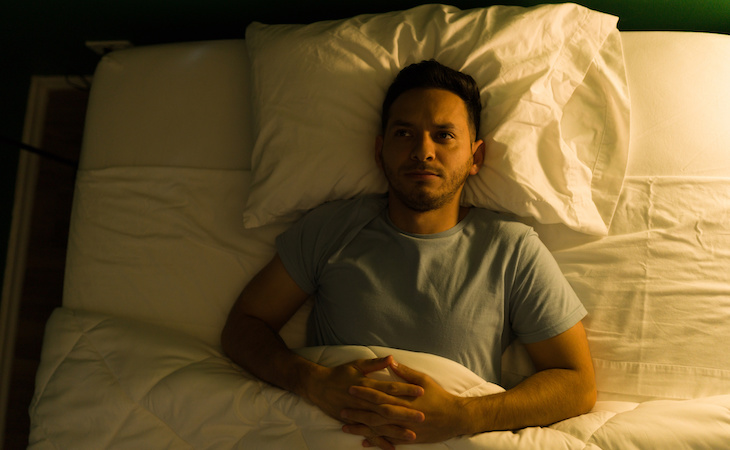As an introvert, I’ve joked that I’ve been preparing my whole life for this period of social distancing we’re all currently practicing in the face of the coronavirus pandemic.
But even though I enjoy spending time by myself (and need the alone time to recharge), I’ve definitely felt lonely not being able to hit up my favorite fitness studio with my regular workout buddy or meet up for drinks after work with my group of writer friends.
The loneliness stemming from social distancing is not exactly good for any of our health. Studies show loneliness can affect everything from sleep quality to productivity to overall well-being.
How social distancing affects your sleep—and your health
Research out of King’s College London shows that people who are lonely tend to feel more tired during the day and have difficulty concentrating. A study published in JAMA Internal Medicine, meanwhile, finds that loneliness leads to a 45% increased risk of mortality. That’s because it weakens your immune system and ups your risk of heart disease, among other health conditions.
While researchers already knew that loneliness could lead to poor sleep and significant health problems, a 2018 study published in Nature Communications reveals the relationship also goes the other way, with poor sleep leading to loneliness. According to the study, poor sleep heightens feelings of loneliness the next day, causing people to avoid social contact similarly to anxiety sufferers.
Personally, I’ve found that the loneliness that’s come from social distancing has exacerbated my anxiety about coronavirus and made it harder to get a good night’s sleep.
“When you don’t have the support of friends and family and your routine is thrown out the window, there’s no break from all of your thoughts about what’s going on,” explains Paige Rechtman, licensed psychotherapist in New York City. “We’re stuck in our thoughts because we’re in social isolation from one another, and the only thing we tend to be connecting about is coronavirus.”
How to keep social distancing from ruining your sleep
So what can I, or anyone else who’s lonely these days, do to combat those feelings and the sleep problems that come along with them? It’s all about staying emotionally connected to others and relieving stress. Here, I’ve rounded up seven tips from experts.
Video chat with friends
“The number one thing you can do, which a lot of people are taking advantage of already, is use FaceTime or Skype,” says Annie Miller, licensed clinical social worker in Washington, D.C., who specializes in treating anxiety and sleep problems. This can help strengthen your connections, even if you can’t be in the same space. Miller says some people are setting up virtual happy hours with their friends or virtual playdates for their kids. (I recently made virtual game night happen.)
Work it out
Although exercise is more difficult these days with gyms across the country closed to prevent the spread of coronavirus, it’s a proven mood- and sleep-booster so it’s worth getting moving any way you can. Many studios are offering free online classes so you can work out at home. My favorite is 305 Fitness, which feels more like a dance party than a workout. Yoga is a good option too since it’s been shown to relieve stress—and there are lots of free yoga workouts on YouTube.
Get some fresh air
Even with social distancing restrictions in place, you can still get some fresh air—and that, too, will help combat the loneliness. “Spend time in nature, whether it’s just a walk around the block, hopefully with the sun shining overhead, or out along a path by some trees or a body of water,” writes John Sharp, MD, in a Harvard Medical School article about social distancing. “Enjoy feeling the elements and feeling grounded and present and grateful to be alive. Nature helps.” Research even shows spending time in nature improves sleep.
Limit time on social media
I know I’m guilty of scrolling through Twitter well into the night, but you should take breaks from checking the news. One thing that helps me is setting limits on my phone for how much time I can spend on my social media apps. “Stay informed and check the news, but you have to find a balance,” says Rechtman. “It’s essential for your mental health and well-being.” And make sure you’re only checking credible news sources, like the New York Times, to avoid any unnecessary panic, Rechtman adds.
Practice gratitude
“I recommend thinking about three things before you go to sleep that are working for you right now,” says Rechtman. “With all of these spiraling thoughts about what could happen, it’s nice to reflect on the day.” These could be as small as seeing someone at the grocery store help someone else or getting to spend time catching up on your favorite TV show, says Rechtman. I’m grateful that my favorite singer is live-streaming nightly performances from his home for the next couple of weeks.
Seek professional help
“Right now, therapy might be seen as one of those things you can do later, and I understand that you do have to prioritize in terms of your resources, finances, and time,” says Miller. “But at the same time, if you’re feeling anxious, it could be a good idea to start the process of talking about it now.”
Rechtman adds that there’s never a wrong time to talk to someone, but if your coronavirus-related anxiety is impeding everyday functions, that’s a sign you should seek professional help ASAP. “We always have things we could be working on,” says Rechtman, “but in this specific circumstance, it’s when levels of functioning start to change—when people aren’t able to sleep, start experiencing more obsessive-compulsive tendencies, or start to feel physical anxiety that’s unmanageable.”
There’s also a possibility your anxiety will spike once this situation is over, says Miller, as it may be challenging navigating “normal” life whenever it returns. “What I notice is that when we’re in the middle of something really challenging, we focus on getting through it,” says Miller. “I think there’s going to be much more on the other side of it, when things start to settle. I think people’s anxiety is going to spike and sleep issues are going to spike.”
That’s why being proactive about therapy now is a good idea. (And virtually every mental health practitioner is offering teletherapy right now.) Miller specializes in Cognitive Behavioral Therapy for Insomnia, which science shows is just as (if not more) effective than sleeping pills.
Use the time alone to reflect
There’s a difference between being alone and being lonely. Sharp suggests asking yourself if there’s anything you can get out of your newfound alone time. He says being by yourself gives you the chance to relive shared experiences.
“You can easily remember the places you’ve been, the people you’ve been with, the feelings you experienced together—all the highs and the lows,” he says. “Whether we’re together physically or virtually, in these trying times when we do need to practice social distancing, we should avoid unintentionally practicing emotional distancing. We can practice being emotionally connected when we’re alone.”
Sharp recommends thinking about who in your life you care about deeply. “Take a moment to feel the connection that you share with each significant other or others,” he says, adding that, “remembering all of that offsets loneliness.”
Not sure how to relax? Here are the best self-care strategies to help you sleep.








